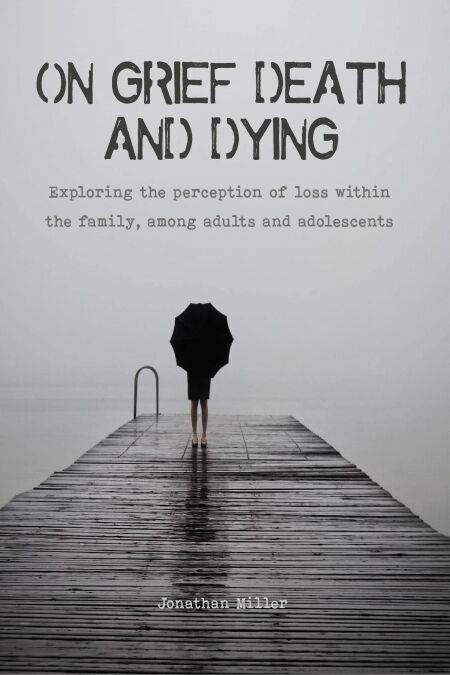
- Afhalen na 1 uur in een winkel met voorraad
- Gratis thuislevering in België vanaf € 30
- Ruim aanbod met 7 miljoen producten
- Afhalen na 1 uur in een winkel met voorraad
- Gratis thuislevering in België vanaf € 30
- Ruim aanbod met 7 miljoen producten
On Grief, Death and Dying Exploring the Perception of Loss Within the Family, Among Adults and Adolescents E-BOOK
Jonathan MillerOmschrijving
Grief is a journey one can only take alone. There is no rehearsal for it, no primer courses. It cannot be measured or timed. No one can do it with you or for you. There is never an end, completion, finish line. There is no one prescribed way to do it, nor is there a tidy process. Grief is messy.
Most importantly, grief is something that no one ever escapes. It surrounds us all the time. It is layered in our lives, permeates the atmosphere.
It is ubiquitous. There are many types and degrees of grief; there are deep pockets of anguish and intense grief that follow a significant person's death in our lives. The more important the relationship, the lower the grieving. In greater and lesser degrees, grief is a continuous process that we navigate throughout our lives.
Grief is about loss, and we are all experiencing losses, major or minor, consistently. For the more enlightened of us, the knowledge of our own mortality can be a constant source of grief that percolates just beyond our daily thought processes. So, if grief is unavoidable and pervasive, why is it such a taboo subject? Why is it totally ignored, shunned, and hidden? Can it be that grief—in our childish, self-absorbed, desperately competitive culture—seems too much like losing and, therefore, must be refuted? In our death-denying American culture, is grief too much a reminder of death, and therefore like death itself, must it be denied at all costs? The grief that lies at the core of so many of our many problems and inabilities to grapple with daily life goes unexamined by even the people who are trained, in theory, to help us navigate through the accumulated traumas of life.
Specificaties
Betrokkenen
- Auteur(s):
- Uitgeverij:
Inhoud
- Taal:
- Engels
Eigenschappen
- Productcode (EAN):
- 9798201907013
- Verschijningsdatum:
- 18/09/2021
- Uitvoering:
- E-book
- Formaat:
- ePub

Alleen bij Standaard Boekhandel
Beoordelingen
We publiceren alleen reviews die voldoen aan de voorwaarden voor reviews. Bekijk onze voorwaarden voor reviews.











